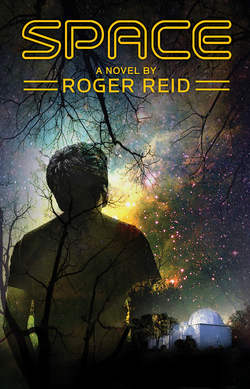Читать книгу Space - Roger Reid - Страница 16
На сайте Литреса книга снята с продажи.
10 Another Universe
ОглавлениеYou can study distant galaxies without ever leaving the comfort of your own planet, because the laws of the universe are the same everywhere. For example, the Canis Major dwarf galaxy is about twenty-five thousand light years from earth. When you consider that one light year is about six trillion miles, the Canis Major dwarf is a galaxy far, far away. And yet, the Law of Gravity works just as well there as it does here. Maybe too well if you happen to live there, because, thanks to the gravity of our own Milky Way galaxy, the Canis Major dwarf is being torn apart. That little galaxy with all of its stars and any planets it may have is being gobbled up by our much larger galaxy.
Andromeda is a large, spiral galaxy like the Milky Way. It’s between two and three million light years away. On a clear night in a dark place, you can see Andromeda with the naked eye. It’s the farthest object you can see without a telescope or binoculars. And yet, Newton’s Third Law of Motion—for every action there is an equal and opposite reaction—works just as well there as it does here. So if you’re stepping into a canoe somewhere in Andromeda, you still have to make sure it doesn’t shoot out from under you.
The most distant galaxy from us is called Abell 1835 IR1916. Astronomers believe it is more than thirteen billion light years away. And yet, out there—way, way, way out there—two plus two still equals four.
It just goes to show that Stephen A. Warrensburg is not from this universe. The laws of his universe and the laws of mine are not the same. His numbers and my numbers don’t add up.
“Caldwell, you don’t understand the greater truth,” he said. “You think I’m an obnoxious know-it-all, and you’re wrong. I don’t know it all. I only know what’s important.”
I noticed he didn’t deny the “obnoxious” part.
He continued, “I was supposed to graduate from high school when I was fifteen. I should have been halfway through college by now. But whoever put me in this wheelchair took all that away. And they took my father.”
“Everybody says it was an accident.”
“Everybody’s wrong. Somebody tampered with the brakes.”
“Warrensburg,” I said, “you’ve already told me that your dad left you out here in the car. Who was it? Who tampered with the brakes?”
He hung his head and mumbled, “I fell asleep.”
“What?” I heard him; I just wanted to make him say it again. And he did.
“I fell asleep.”
“You didn’t see anything? You didn’t hear anything?”
He lifted his head, took a deep breath, looked at me and said, “No. No, I didn’t see anything. No, I didn’t hear anything. But don’t you imply it didn’t happen. Somebody tampered with those brakes.”
“The police inspected the car?” I asked.
“Car was too mangled,” he replied.
“So how do you know . . .”
“Because,” he said, “I know. I just know.”
In Stephen Warrensburg’s universe two plus two can equal whatever he wants it to.
